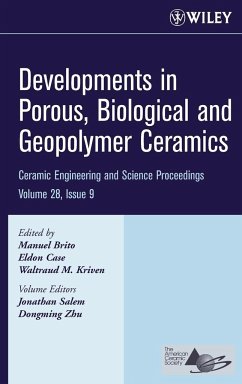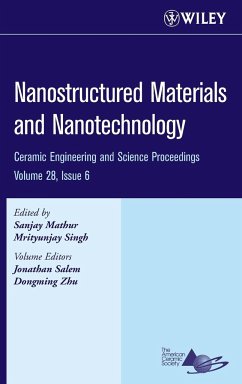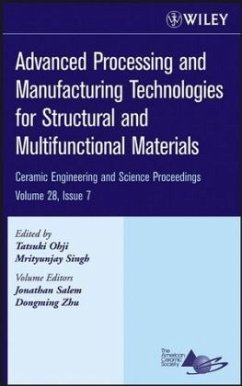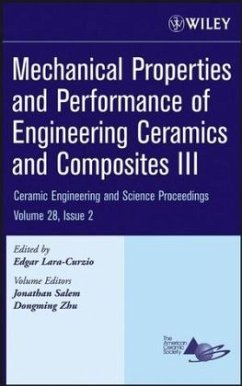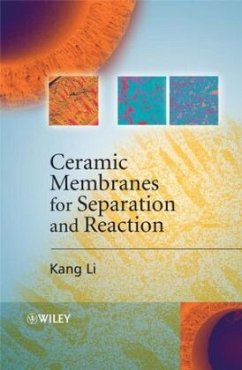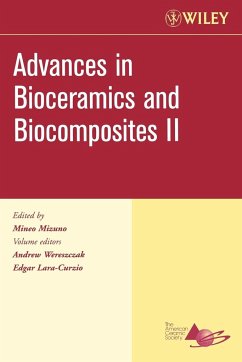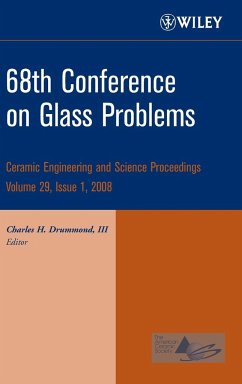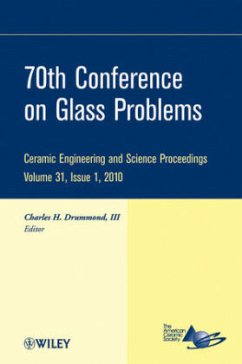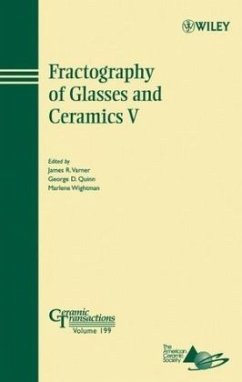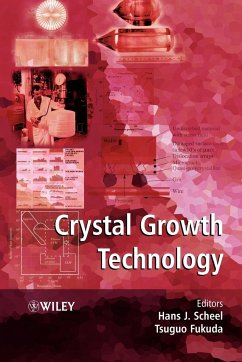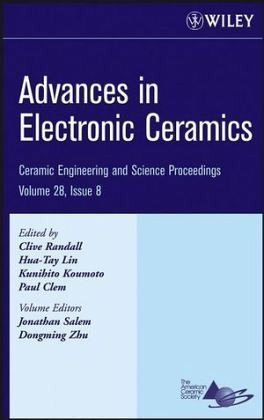
Advances in Electronic Ceramics, Volume 28, Issue 8
Versandkostenfrei!
Versandfertig in über 4 Wochen
129,99 €
inkl. MwSt.

PAYBACK Punkte
65 °P sammeln!
Advances in Electronic Ceramics: Ceramic Engineering and Science Proceedings, Volume 28, Is 8 explores advances in dielectric, piezoelectric and ferroelectric materials; electroceramic materials for sensors; thermoelectric materials for power conversion applications; and transparent conductive oxides.
Papers from The American Ceramic Society s 31st International Conference on Advanced Ceramics and Composites, held in Daytona Beach, Florida, January 21 26, 2007. Topics include advances in dielectric, piezoelectric and ferroelectric materials; electroceramic materials for sensors; thermoelectric materials for power conversion applications; and transparent conductive oxides.



